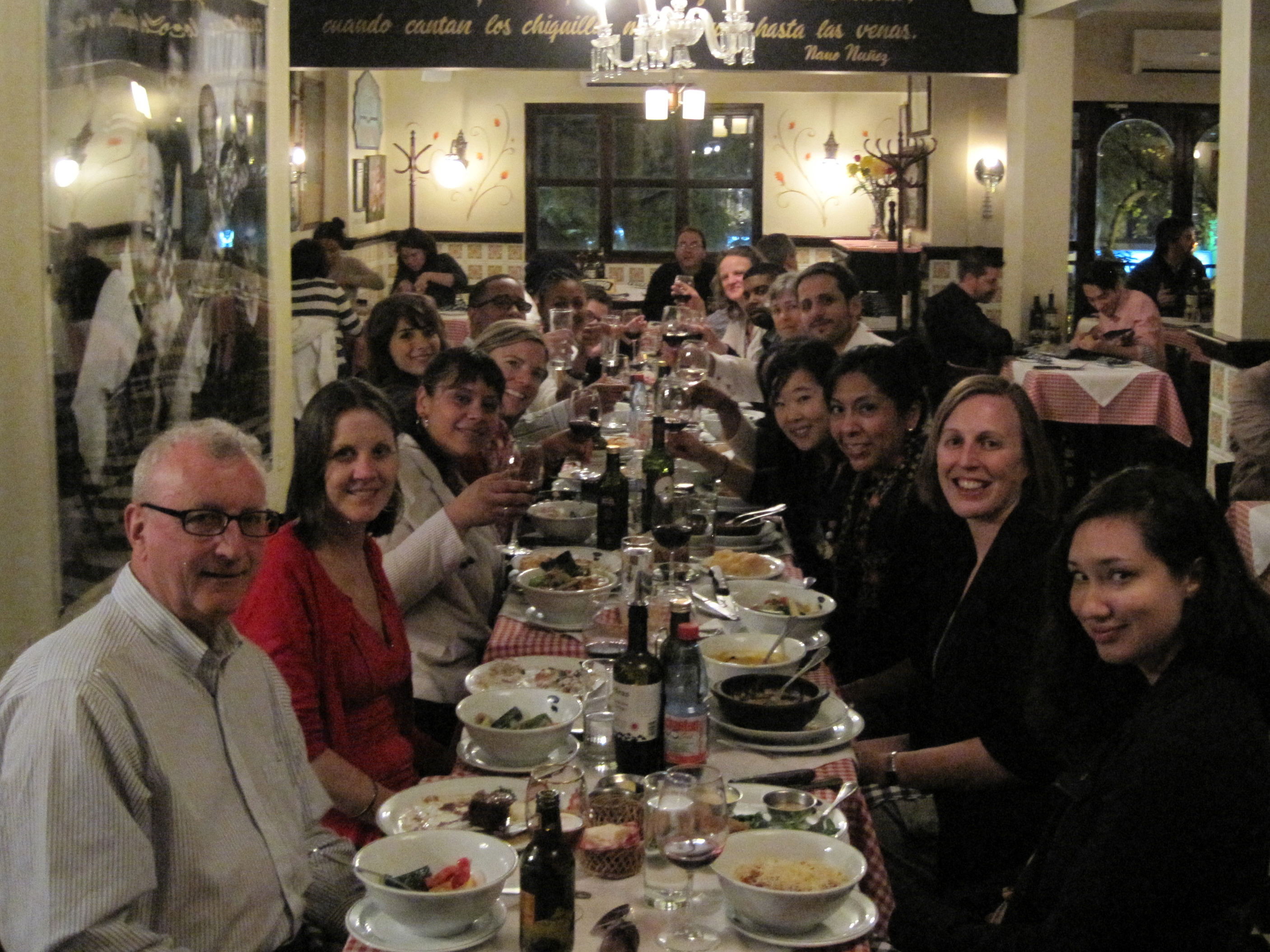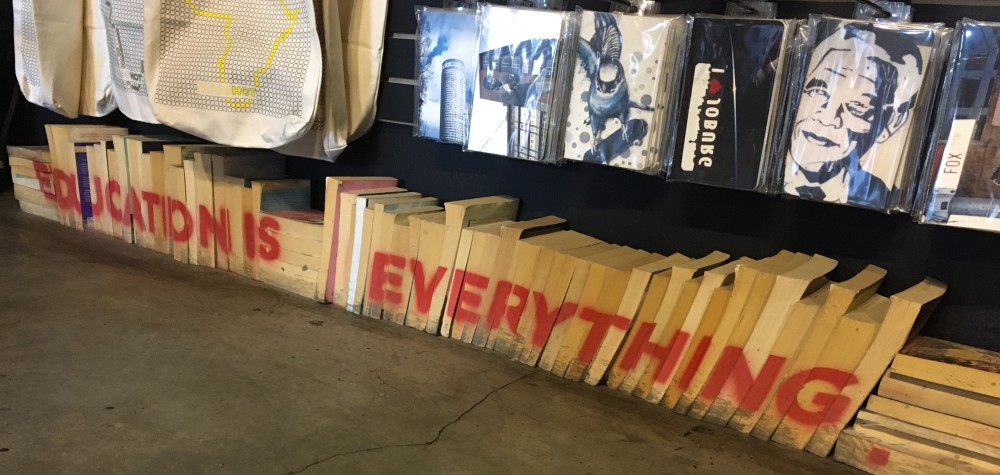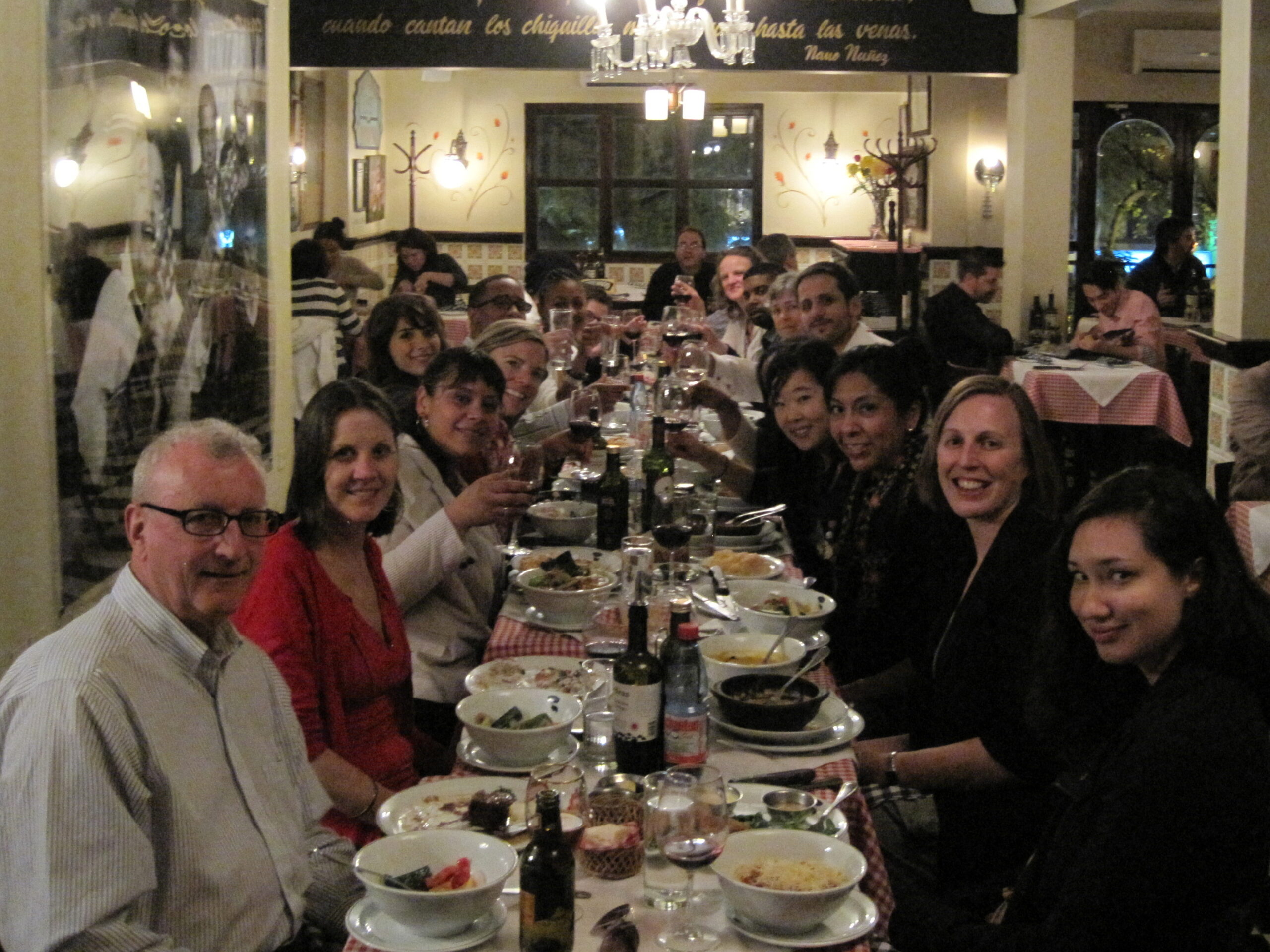Wednesday we met with two organizations who provided additional national-level perspective on the Chilean system. We went to Conicyt, which is the umbrella organization that provides funding for Chileans, across fields and mostly at the graduate level, to study in Chile or elsewhere in the world. Until recently national scholarships were dispersed among several ministries and areas, but have now been grouped together under one coordinating body. The role of Conicyt has shifted, as a result, from being an advising body for STEM areas to a coordinating body that oversees millions of dollars in scholarships each year.
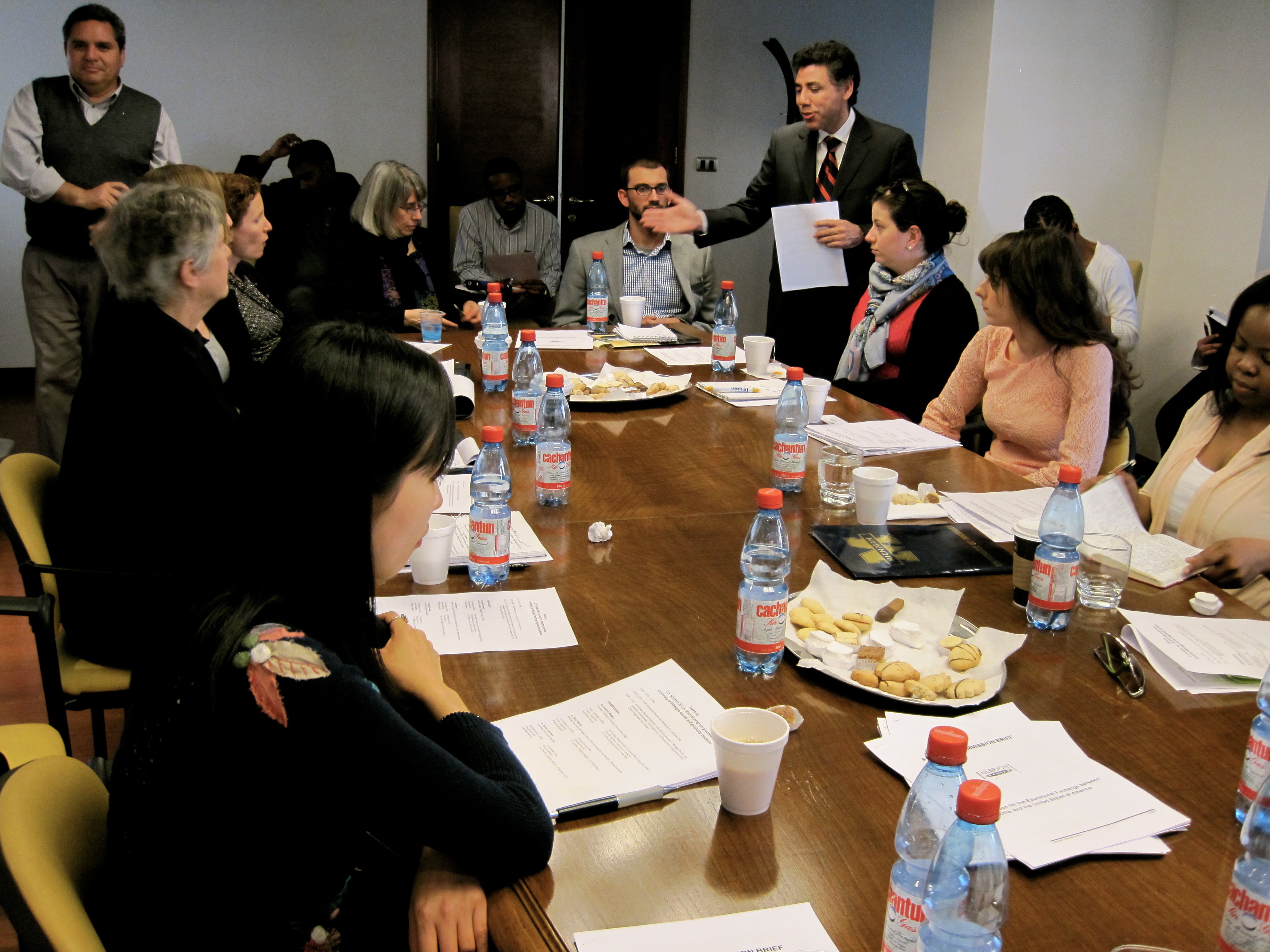
During the afternoon, we visited Fulbright. Antonio, a Fulbright staff member, provided an overview of the Chile Fulbright program for us. We also met several American Fulbright scholars who have lived and taught in Chile. That morning, we had started our day out by attending a major student protest, which involved many thousands of people, and we continue to learn how student protests have an important role in the Chilean higher education system. When we asked the panel of Fulbright Scholars about the protests, each of them shared how they had experienced student protests touching their work in Chile.
Debbie, who teaches English instructors described the collective identity of students in her classroom, which she described as linked to the identity present throughout the student protest movement. She gave the example that in the States, she may have students complain about deadlines or assignments, but in Chile, she will receive many emails at one time, a process planned by students in the class asking her to reconsider a deadline. “It’s not an individualistic approach like at home,” she told us. Duncan, another Fulbright Scholar, said no one was at Arcis, the university where he teaches, that day. Students “know,” he told us, that they don’t have to come to school on the day of a protest. Although student protests could be viewed in a negative light, the Scholars didn’t seem to portray it as such. Nancy, a dean from Temple University, who studies the music of student protests spoke of the “amazing richness” of scholarship and culture in Chile that at times, unfortunately, is not shared outside of Chile.
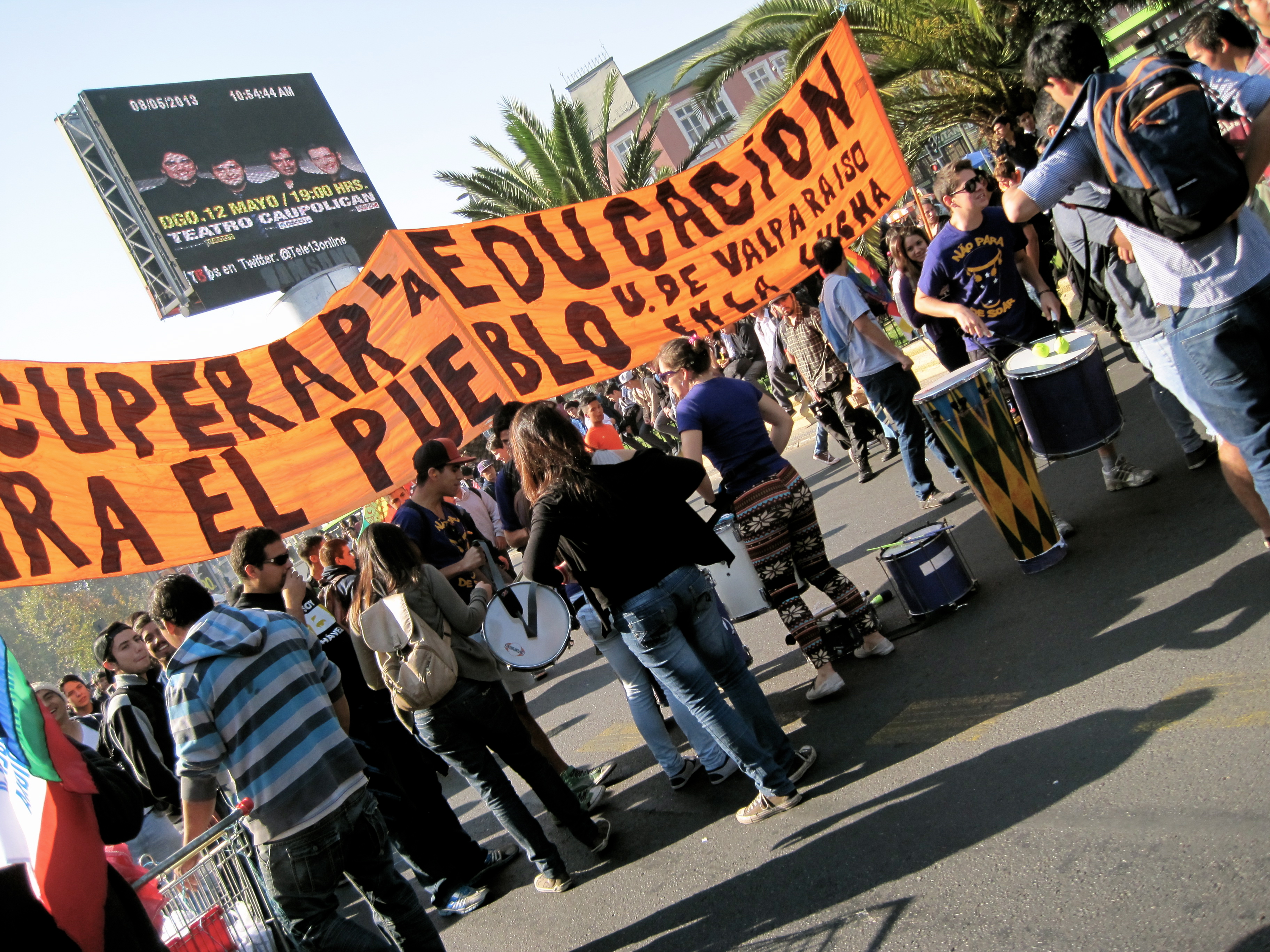
Antonio said that the protests have five major points that Chileans are advocating: the first three include profit-making; that “education should go back to being a public good;” and quality, because “Chile is suffering a crisis.” Observing the start of that day’s protest was a powerful experience for our group in that we could feel the energy and celebration—and great pride around identity–that underlies this important influence on the higher education system. Not only did the teacher’s union walk in unison, waving their flags, but also parents, high school students in school uniforms, and many other individuals and groups walked together. Vendors were selling not only popcorn and typical snacks, but flags of the Native or aborigine peoples, in addition to pins advocating for no war and LGBTA rights.
Aside from the role of student protests, another theme our discussions have touched upon is the socialization and preparation of faculty. Similar to the move in the US toward greater reliance on adjunct faculty, many faculty members in Chile work at several institutions at the same time—several speakers have referred to faculty members who do this as “cab” or “taxi” professors because they must go in-between several institutions to make ends meet. Because doctoral programs are in their infancy in Chile, faculty members here often have not earned a doctorate degree. Currently, however, a push is growing for faculty to have PhDs. We learned about the resulting discussion between “keeping” the best and brightest scholars in Chile to earn their doctorates at home, versus providing funds to send these scholars overseas for their education at top-ranked universities around the world. Both Conicyt and Fulbright referred to this tension, although each require their scholars to return to Chile for a number of years when they complete their study or work outside Chile. Antonio said, in reference to the cultural learning that Fulbright Scholars bring home to Chile, “It’s not so much about the money, it’s the opportunity…You have a responsibility then to your country, to your community.”
After a day of rich discussion, we ended the day with good food and conversation at a traditional Chilean restaurant, Bar Liguria.
